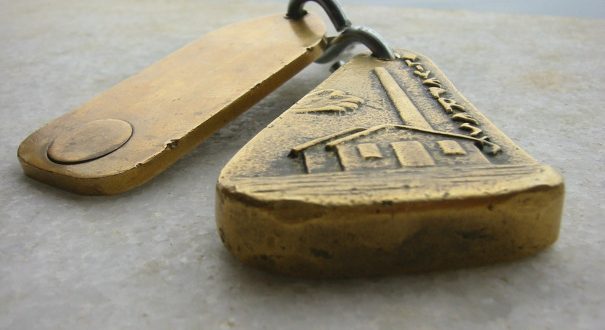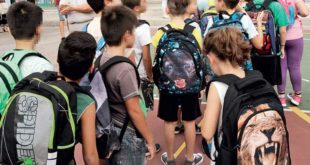Tourist accommodation
Recommended dates for the reopening of tourist accommodation:
01.06.2020: reopening of the tourist accommodation for twelve months of operation and the organized tourist camps
15.06.2020: reopening of seasonal tourist accommodation
Tourist accommodation protocol
(except for organized tourist camps)
The specifications for the reopening of tourist accommodation apply to all accommodation regardless of technical and operational specifications, classification, type, duration of operation, except for organized tourist camps. Each tourist accommodation should draw up a Protocol in accordance with the instructions of the Ministry of Tourism.
General data of the Protocol.
Development of action plan and plan for the management of a suspected case
Development of an action plan by the administration / management of the tourist accommodation and individual protocols for each section of the accommodation and more specifically for the case of crisis (management of a possible case). The development of the action plan concerns hotels with a capacity of more than 50 rooms.
The development of a plan for the management of a suspicious case concerns all accommodation (according to the current instructions of EODY).
Plan of Action.
The aim of the action plan is to prevent the occurrence and effective management of suspicious cases in order to limit the expansion of staff and tenants.
The action plan will comply with the recommendations of EODY and will be revised according to developments.
The action plan is presented in writing to take measures to prevent and manage suspicious cases from the tourist accommodation through protocols. In particular, with the action plan:
- The address of the accommodation appoints a coordinator to supervise the implementation of the application and is responsible for each individual part of it (eg F&B, Housekeeping). The position of the coordinator, depending on the size of the accommodation, may be covered by the owner of the business, from an existing position of General Manager / Quality Manager, etc. or from a new position in the organization chart. It can also be set at Management level.
- The fact that the staff is trained in the observance of the protocol or the individual protocols per section of the accommodation is reflected with a corresponding report of the individuals, the duration and the way of education (eg tele-education, training from outside accredited partner etc.). The e-learning method is recommended and the mandatory monitoring of all employees is considered necessary.
- Collaboration with a physician (detailed details of a collaborating physician) is recorded, who acts on the instructions of EODY for the control of COVID-19 and in particular is trained in taking a nasopharyngeal sample for molecular testing from a suspicious case. At the same time, in the context of telemedicine, he has the ability to monitor his suspected case and close contacts.
- Possible certification of the tourist accommodation in terms of taking measures to prevent and treat COVID-19 pandemic by accredited certification bodies.
Suspected case management plan
In particular, for the management of a suspected case, the plan for dealing with a suspected case of EODY is followed.
To ensure the implementation of the accommodation case management plan from the accommodation it is necessary to appoint an application manager. The position of the coordinator, depending on the size of the accommodation, may be covered by the owner of the business, from an existing position of General Manager / Quality Manager, etc. or from a new position in the organization chart. It can also be set at Management level.
In the event that the accommodation has developed an action plan (accommodation over 50 rooms), the coordinator to oversee the action plan and the person in charge of implementing the suspicious case management plan may be identified.
The accommodation has the obligation to disclose contact details to the competent department of the Ministry. Health / EODY:
- a) the person in charge of the implementation of the suspected case management plan,
- b) the collaborating physician or the secondary health care provider.
Accommodation staff
- Responsible statement of each staff member that he / she has been informed about the COVID-19 hygiene and case management protocols related to his / her area of responsibility. Training plan (by telephone training on mobile or tablet) until July 15 for one person per service (individual protocol) of the accommodation, which will then take over the training and other staff.
- Education is at least related to the following:
– The sources and modes of transmission of the virus
– Information procedures for hotel officials and customers themselves
– Behavior and actions in case of illness by staff
-Methods and practices for cleaning and disinfecting identified spots based on the risk and likelihood of transmitting the disease
– Methods and communication approach of visitors
-Maintaining the basic measures to avoid transmitting the virus regarding diligent and regular hand washing, avoiding handshakes, keeping distance, avoiding contact of hands with eyes, nose and mouth and respiratory hygiene
-Maintaining training files and documenting recruitment for each employee
- Each staff member must strictly adhere to the basic protection measures against COVID-19: observance of hand hygiene, physical distancing by customers and other staff, in all workplaces, hotel areas and rest areas, avoiding touching the face and general personal and respiratory hygiene.
- The tourist accommodation must provide each member of the staff with adequate Personal Protective Equipment and ensure the continuous adequacy of the stocks.
- Staff are advised to stay home and seek medical attention if they experience symptoms related to the disease, notifying the health manager of the accommodation.
- A person with symptoms should be excluded from the job and returned to work if the laboratory test is negative.
- It is recommended that staff staying in the accommodation be provided with double rooms. If a staff member belongs to a vulnerable group, it is recommended that they be given single beds.
- It is recommended that staff be thermometered every morning as part of their individual responsibility. Careful monitoring of staff may follow depending on the epidemiological picture of the local community / area
- If a staff member comes in contact with a case, they must report it immediately to the health manager of the accommodation and be removed from work.
Accommodation file and event book.
For the purposes of public health protection, the accommodation address must keep a record of staff members and all persons staying at the hotel – name, nationality, date of arrival and departure, contact details (address, telephone, e-mail) – , so that it is possible to communicate with the close contacts of any COVID-19 impact, which may be identified afterwards.
Pay attention to the General Regulation on Personal Data Protection (GDPR) and inform all visitors that a file is kept for reasons of public health protection.
It is necessary to record and update the service book and events.
Communication.
The accommodation must notify the measures and requirements of the Action Plan to all internal and external bodies / partners (employees, tenants, contractors, suppliers, visitors and the general public) and interested parties.
It is recommended to update the website of the tourist accommodation with a special section COVID-19, in which you will post the measures and the new policy of the accommodation on taking increased hygiene measures, changes in operating hours of common areas, modification of check-in / check-out duration. Respectively, you can follow the information with the available means inside the accommodation (eg in public TVs, in room TVs, signage before entering the individual public areas and printed information in the reception).
Accommodation services.
Reception service (reception desk / concierge).
Staff must take the necessary hygiene measures (hand wash), keep a distance of at least one meter from customers (avoid handshakes, etc.) and follow the rules of hygiene.
It is recommended to avoid placing in places of reception of people belonging to the vulnerable groups of the population.
When requested, be able to: a) inform visitors about the accommodation policy and the measures it has taken to deal with any incidents, b) provide useful information to health care providers, public and private hospitals, reference hospitals for COVID-19, pharmacies etc. in the area and c) provision of Personal Protective Equipment.
It is recommended to provide information leaflets on basic health instructions translated into English, French and German. In addition, the provision of these instructions through the development of an application on mobile phones.
Special equipment (medical kit) for the occurrence of an incident, such as gloves and disposable masks, antiseptics, cleaning wipes, apron, long-sleeved robe, laser thermometer.
Staff must be able to recognize customer symptoms and report them directly to the health care provider.
Optional use of plexiglass in the socket (placement of polycarbonate material)
The reception desk must have an antiseptic for use by the customer (fixed or non-fixed devices)
Regular disinfection of the reception desks is recommended.
In order to maintain distances, the accommodation applies appropriate configuration of the reception (reception desk), addition of floor marking at a distance of two meters where the customer will stand / appropriate distance marking in the waiting area, proper arrangement of furniture and proper queue management to reduce it waiting time.
Avoid overcrowding during check-in / check-out.
It is recommended to use electronic alternatives for check in-check out (eg mobile concierge, use of tablets that can be disinfected after each use).
Check the possibility of check-in in an open space
It is recommended that electronic payment of accommodation expenses (acceptance of cash in exceptional cases), electronic sending of bills, invoices and receipts be recommended.
Disinfection of key cards – their placement in a special container for disinfection.
Extension of check-out and check-in between stays (check out until 11.00 am and check in from 3.00 pm). This change in the time interval between each check in and check out is mandatory to ensure that between different customers the room is thoroughly cleaned and disinfected, as well as that adequate natural ventilation of the space is followed.
No entry in rooms for non-residents.
Floor services (cleaning, disinfection, housekeeping), rooms and common areas
Cleaning and disinfection program (see relevant EODY Instructions)
Special Cleaning Instructions in case of an accident (see relevant EODY Instructions).
Reinforcement of sanitary services in all public areas and especially in “high risk” objects (eg knobs, elevator knob)
Meticulous cleaning and very good room ventilation during the hours between stays.
Check the proper operation of dishwashers and washing machines (in terms of temperature used and dosage of detergents)
Sufficient staff equipment (gloves, masks, robe, closed shoes)
Cleaning staff are advised to use a simple surgical mask (in case of non-availability of a surgical mask, the use of canvas is recommended), gloves and a disposable waterproof robe. As long as he works, the cleaning staff should not touch his mouth, nose or eyes with his hands, smoke or eat.
After removing the gloves, it is necessary to wash your hands thoroughly with soap and water. It is emphasized that the use of gloves does not replace hand washing, which is the most important means of prevention
Discreet monitoring of customers with symptoms for management by the administration
Uncommon room cleaning during the stay (avoid contact of cleaning workers with a possible case and further transmission).
Abolition of daily change of clothing and towels, of the evening preparation only at the request of the customer.
For departures, a choice between 2 protocols:
– regular cleaning and waiting 24 hours before the room is available to a customer or
– meticulous cleaning – disinfection (eg with steam cleaner) on the disputed rooms of the room and bathroom.
It is recommended to remove decorative objects (pillows, bedding)
It is recommended to remove shared multi-purpose items such as menus, magazines, etc.
Installing a disposable cover on the TV and air conditioner controls
Fabric surfaces (eg furniture upholstery) should be cleaned with a steam appliance (temperature> 70.).
Opening doors and windows for natural ventilation of the space daily.
Marking is recommended to inform the customer about when and how the room was cleaned.
It is recommended that individual antiseptic fluids be placed in each room or antiseptic device.
Sheets/towels warehouse – washing machines
Strict observance of the rules of hygiene by the personnel involved in the sorting of dirty linen using the appropriate ΜΑΠ (special disposable apron over the uniform, gloves and mask)
Used fabrics, bedding and towels must be placed in special, enclosed, marked bags or bags in order to be transported to the laundry area.
Careful separation (marking) of dirty and clean linen areas
Trolleys for transporting closed bags with linen should be disinfected after each use.
Instructions for washing them in hot circles (70oC or more) with the usual detergents should be given.
In case the cleaning service of the clothing is provided by an external partner, it should be checked that all the required measures are observed and that they are delivered in the appropriate way.
When storing clean clothing, care must be taken to keep it in good and clean condition. The same applies to the transfer of clothing to use areas (rooms, restaurants, etc.).
Catering services (dining rooms / public areas), packaging areas.
These include a la carte restaurants, buffet restaurants / breakfast rooms, open and closed bars
Packaging area/ kitchen:
Observance of HACCP
Receipt of goods by specific staff and always wearing gloves and a mask.
Special care should be taken to keep the distance between kitchen workers according to the requirements of the health authorities, as they apply each time.
It is not allowed to enter the kitchen area for those who do not have a job. In case this cannot be avoided, the visitor should be provided with appropriate personal protective equipment, which will be available at the entrance of the kitchen.
Miscellaneous
Restaurant operation, bar, etc. according to the current legal framework
Children’s leisure facilities
Operation of recreational areas for children in accordance with the current legal framework.
Personal care services, spa and shared facilities
Operation of spaces in accordance with the current legal framework.
Drinking water – Water / sewerage network
Accommodations must comply with the circular of the Ministry of Health “Protection of Public Health by the corona SARS-COV-2 in the water supply and sewerage systems”
In the event that the tourist accommodation remains out of operation for more than one month, the steps described in the Directive: “ESGLI Guidance for managing Legionella in building water systems during the COVID-19 pandemic” must be followed.
Sewerage.
It is recommended to use standard and well-ventilated pipes, such as wells with odor traps and return valves on taps and sprayers.
Olfactory traps (siphons) should work properly and continuously. In other words, they should always have water inside. In case the space is not used for a long time, water should be added either by adding it directly to the bone traps or by opening / operating the connected devices. This should be done at regular intervals depending on how quickly the water evaporates from the odor traps (eg every 3 weeks).
Swimming pools, hydromassage / hydrotherapy tanks and other recreational water facilities.
Operation in accordance with the applicable legal framework.
Indoor swimming pools: It is not allowed to operate indoor swimming pools
- Chlorination: proper operation and maintenance of chlorination systems in accordance with current legislation (see YA C1 / 443/1973 as amended by C4 / 1150/76 and DYG2 / 80825/05 and circular on “Prevention of Legionnaires’ disease” ). It is recommended, according to the WHO guidelines (Guidelines for safe recreational water environments – Volume 2 – Swimming pools and similar environments), that the residual chlorine value in tank water be 1-3 mg / L for swimming pools and up to 5 mg / L for water cooling tanks. Manual control (or use of halogen analyzer with paper recorder) of chlorine levels every 4 hours for swimming pools and every hour for water storage tanks and keeping a record file, unless there is an automatic halogen analyzer and monitoring system with alarm system when is out of bounds.
- PH adjustment: the pH values in the water of recreational water installations should be maintained within the limits provided by the current legislation (see HA C1 / 443/1973 as amended by C4 / 1150/76 and DYG2 / 80825/05) .Regular measurement and maintenance of pH recording files every eight hours during the operation of the swimming pools and at least every two hours during the operation of the hydromassage and hydrotherapy tanks, if there is no automatic recording system.
- Cleaning and disinfection: compliance with the rules of cleaning water recreation facilities, regular cleaning and disinfection according to EODY instructions “Proposed procedures for the cleaning and disinfection of hosting areas during the COVID-19 pandemic”.
- Catacombs: Showers that serve recreational water installations are recommended to be separated by an opaque separator so that efficient bathing of swimmers becomes possible before entering the swimming pool. Strong recommendation and emphasis on informing customers with relevant labeling for the use of storm seals before and after using the swimming pool. It is recommended that the accommodation provide the essentials (eg soap, shower gel, etc.), as well as liquid antiseptic when entering the canisters.
- Number of bathers: the maximum total number of people entering the tank at any given time will not be greater than one bather per 2.5 m2 of water surface.
- Keeping a distance: the layout of the seats (sunbeds, chairs, poufs, sun loungers, etc.) should be such that the distance between the extremities of the seats of two people in two different umbrellas or two people living in a different room , be at least 2 meters in each direction.
- It is recommended to use materials or cover objects with materials that can be effectively disinfected in the seats, tables, personal storage boxes, staff notification buttons and price lists.
- source:- www.gov.gr
 Zakynthos Informer Zakynthos Informer
Zakynthos Informer Zakynthos Informer





